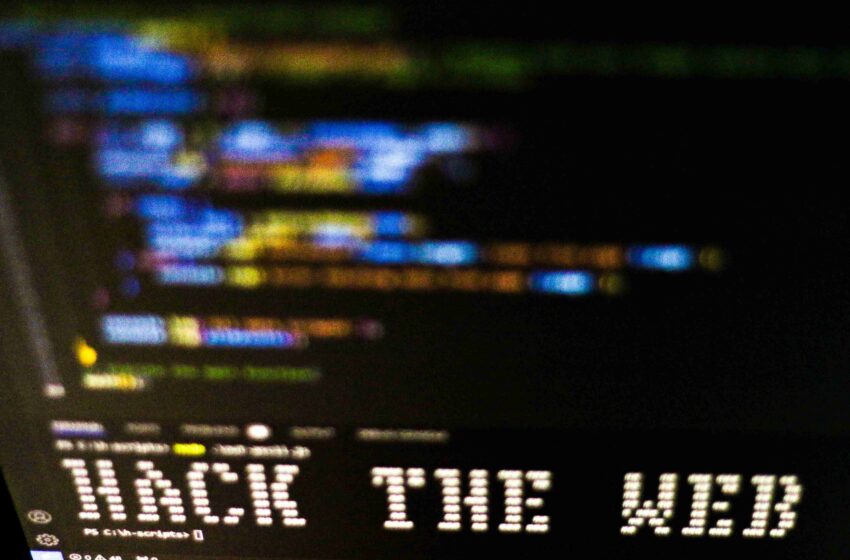

UK Backs Jaguar Land Rover with £1.5bn Guarantee After Cyberattack
Disastrous Cyberattack Halts JLR Production
A few months back, Jaguar Land Rover (JLR) fell victim to a sophisticated cyberattack that froze its IT systems, halted production across its UK plants, and sent shockwaves through its vast supply chain. The disruption forced a shutdown spanning at least a month, and JLR confirmed it would extend suspended operations until at least October 1.
The attack disabled critical systems used for parts tracking, vehicle assembly scheduling, and factory logistics. JLR’s staff were told to stay home, and suppliers reported cash flow stress, with some warning they had only days of reserves left.
JLR, which is wholly owned by India’s Tata Motors, operates three UK factories (Solihull, Halewood, and Wolverhampton) and supports a network of more than a thousand suppliers, many of which are small and medium enterprises. The scale of the disruption threatened tens of thousands of jobs in the automotive sector.
Government Steps In: £1.5 Billion Guarantee to Stabilize the Ecosystem
In response to the crisis, the UK government announced a £1.5 billion (≈ $2 billion) loan guarantee backing a commercial credit facility for JLR, designed to provide liquidity to the automaker and, critically, its suppliers.
The guarantee is to be provided via UK Export Finance, the government’s export credit agency, which will underwrite up to 80 % of the risk to lenders. The loans are expected to carry favorable interest terms with a five-year repayment horizon.
Business Secretary Peter Kyle characterized the cyberattack as “an assault on our world-leading automotive sector,” stressing the need to preserve jobs in the Midlands, Merseyside, and across the UK.
Although the loan guarantee had political support across parties, critics immediately raised the specter of moral hazard: that shielding companies from major failures could reduce incentives for resilience, cybersecurity investments, or insurance coverage.
Financial & Operational Fallout
Supplier Distress and Cash Crunch
Many smaller suppliers claimed they were on the brink of collapse, unable to deliver parts to JLR or get paid. Some reduced staff hours, while others warned of layoffs. Stability in this segment is vital—without functioning upstream supply, JLR cannot resume production effectively.
Production and Revenue Losses
Estimates suggest JLR is losing tens of millions of pounds per week in lost production. The inability to produce, sell, or maintain vehicles in the interim threatens not only immediate revenue but longer-term brand, market share, and customer trust risk.
JLR has signaled plans to reopen engine production at its Wolverhampton facility by October 6, contingent on cybersecurity validation and system integrity checks.
Challenges With Insurance & Cyber Risk
One controversy is that JLR reportedly did not have cyber insurance at the time of the attack. That raises questions about risk management practices, corporate governance, and whether the government guarantee is rewarding under preparedness.
Strategic Implications & Risks
Signal on State Intervention
The government’s swift move sets a precedent: in critical sectors, the state may intervene to prevent systemic collapse. While some view this as necessary industrial defense, others worry it blurs public-private risk boundaries.
Moral Hazard & Weak Incentives for Safeguards
As critics warn, if firms believe emergency bailouts are possible, they may underinvest in cybersecurity, disaster recovery, or insurance. That could lead to a complacency spiral in sectors vulnerable to cyber threats.
Reputation and Accountability
JLR (and Tata Motors) will come under pressure to explain why protections like cyber insurance or stronger IT resilience were not in place. The public and industry will scrutinize executive decision-making and accountability.
Capital Markets & Debt Risk
Though the guaranteed loan is backed by the government, JLR must still service the debt. If revenues remain suppressed, the financial burden could erode credit ratings, increase borrowing costs, or strain parent company resources.
Economist’s Lens: Balancing Rescue & Market Discipline
Economists broadly acknowledge that while the loan guarantee is essential to avoid supply chain collapse and mass job losses, the approach is fraught with long-term implications.
Tom Clougherty of the Institute of Economic Affairs warned the guarantee could create moral hazard by insulating firms from downside risks and reducing incentives for prudent behavior, such as investing in cyber resilience.
Jamie MacColl of the Royal United Services Institute observed that private firms should not expect perpetual state rescue—such backing needs tight rules, accountability, and possibly premium costs for crisis support.
In FT commentary, analysts highlighted the tension between safeguarding strategic industrial ecosystems and preserving market discipline. Without proper checks, repeated bailouts can foster dependency and reduce innovation in risk management.
Moreover, some economists argue that this is a moment for the UK to rethink its cyber reinsurance framework: a mechanism where the state backstops catastrophic cyber risks, ensuring firms retain skin in the game while limiting systemic contagion.
What’s Next: Steps & Watchpoints
- JLR and lenders must finalize the loan agreement under the export guarantee scheme.
- Strong oversight and conditions will likely be attached—such as investments in strengthened cybersecurity infrastructure, third-party audits, and periodic compliance reporting.
- The government may explore establishing or strengthening a national cyber resilience fund or reinsurance pool for key industries.
- Suppliers must be stabilized with liquidity, contractual assurances, and bridge financing to prevent cascading failures.
- Ongoing investigations into the cyberattack (criminal attribution, cybersecurity gaps) will inform regulatory reforms, liability frameworks, and industry standards.
- JLR’s recovery strategy—how quickly factories restart, quality control, and damage control—will be critical in regaining market confidence.
Key Takeaways
- A major cyberattack paralyzed JLR’s UK operations, halting production across its plants and jeopardizing its supply network.
- In response, the UK government pledged a £1.5 billion loan guarantee (≈ $2 billion) to underwrite commercial borrowing and shore up liquidity.
- The move aims to protect suppliers, preserve jobs, and maintain (UK) Britain’s automotive backbone—but runs risk of moral hazard and reduced discipline.
- Economists urge the guarantee to be coupled with strict conditionality, greater industry accountability, and development of national cyber resilience mechanisms.
- The path ahead hinges on successful recovery, cybersecurity reforms, and ensuring this intervention does not become an unsustainable precedent.




